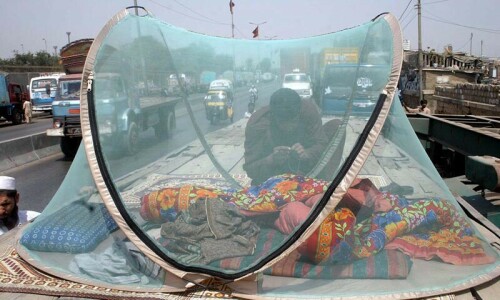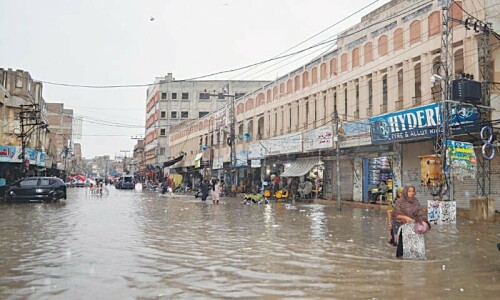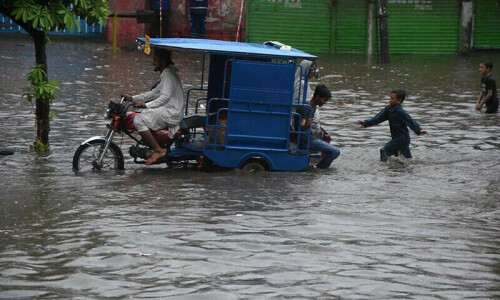Torrential storms lashing Pakistan have killed 178 people during this year’s monsoon season, official data showed on Tuesday, while more than 400 lives have been lost in fellow South Asian countries of India and Nepal.
Monsoon rains across the region from June to September offer respite from the summer heat and are crucial to replenishing water supplies. They are also vital for agriculture, and therefore the livelihoods of millions of farmers and food security for South Asia’s nearly two billion people.
Weather-related disasters are common during the monsoon season, but experts say climate change is increasing their frequency and severity.
Ninety-two children are among the 178 deaths across Pakistan since the rains arrived in July, with the collapse of homes the biggest killer, according to the National Disaster Management Authority (NDMA).
In Khyber Pakhtunkhwa, mountain villages have been warned of the risk of glacial lake flooding this week as temperatures and humidity climb.
Pakistan contributes less than one per cent to global greenhouse gases yet is one of the countries most vulnerable to climate change.
In 2022, catastrophic flooding plunged a third of the country underwater, killing over 1,700 people, displacing 33 million, and destroying thousands of homes.
Monsoon in the rest of South Asia
Monsoon rains also claimed many lives in other countries of South Asia, including at least 250 in India and 171 in Nepal, according to official data in each country.
India is the world’s third-biggest emitter of greenhouse gases but has committed to achieving a net zero emissions economy by 2070 — two decades after most of the industrialised West.
For now, it is overwhelmingly reliant on coal for power generation.
Just months after the country baked in its longest-ever heatwave, according to government weather experts, ferocious rainstorms have triggered widespread flooding and landslides.
The crushing heatwave in May and June saw temperatures in New Delhi match the capital’s previous record high: 49.2°C clocked in 2022. Now the heat has been replaced by rains.
India’s weather department this week warned of “heavy rainfall” over much of the south and northeastern states.
On Tuesday, Indian rescue teams searched for two missing people after nine drowned when a surge of water smashed through the Una district of Himachal Pradesh state.
Witnesses saw a car being swept away like a toy by the swollen muddy river.
“Several people tried to stop the car […] as the current was increasing but the car sped past and soon the car was swept away by the strong current,” Rajendra Kumar said.
Scores of people have died in India this month alone, while 200 people died in the southern state of Kerala last month when landslides hit villages and tea plantations.
In Nepal, 171 people have died since monsoon rains began in mid-June, including 109 people in landslides.
Other deaths have been caused by floods and lightning, according to the disaster authority.
Searches continue in central Nepal’s Chitwan district for two buses swept over concrete crash barriers in a raging river on July 12, killing around 50 people.














































Dear visitor, the comments section is undergoing an overhaul and will return soon.